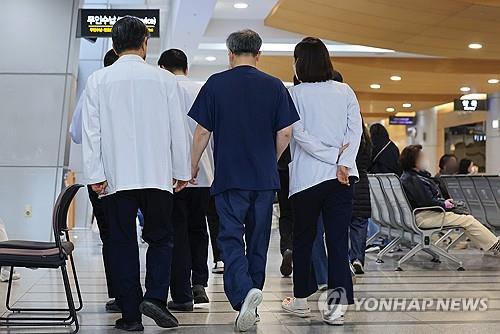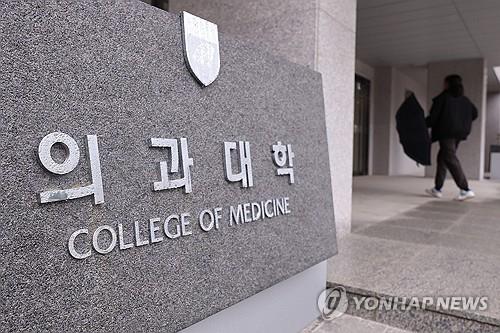- California Assembly OKs highest minimum wage in nation
- S. Korea unveils first graphic cigarette warnings
- US joins with South Korea, Japan in bid to deter North Korea
- LPGA golfer Chun In-gee finally back in action
- S. Korea won’t be top seed in final World Cup qualification round
- US men’s soccer misses 2nd straight Olympics
- US back on track in qualifying with 4-0 win over Guatemala
- High-intensity workout injuries spawn cottage industry
- CDC expands range of Zika mosquitoes into parts of Northeast
- Who knew? ‘The Walking Dead’ is helping families connect
Gov’t allocates increased medical school seats despite doctors’ protest
The government on Wednesday allocated an additional 2,000 medical school admission seats to universities across the nation, pushing ahead with the medical reform initiative even as the biggest doctors’ group threatens to launch a general strike in protest.
Education Minister Lee Ju-ho made the announcement, nailing down the much-resisted medical school quota hike aimed at enhancing health care services in remote areas as well as essential but less popular medical disciplines, despite doctors’ repeated calls for a compromise.
It marks the first increase in the nationwide medical school admission quota in 27 years.
Under the increased quota, 82 percent, or 1,639, of the additional 2,000 seats were distributed to 27 universities outside the broader capital region, raising their combined admission seats to 72.4 percent of the total from the current 66.2 percent.
The remaining 18 percent were allocated to five medical schools located in Gyeonggi Province surrounding Seoul and the western port city of Incheon, with no allocation made for schools within Seoul.

As a result, the medical schools at seven regional state-run universities saw their quotas increased to 200 seats each, including Pusan National University, Chonnam National University and Gyeongsang National University.
Both Ajou University in Gyeonggi and Inha University in Incheon had their quotas revised up to 120 seats.
The education ministry said the distribution was determined in a way that could allow people access to quality health care services anywhere in the country.
In cooperation with other related ministries, the education ministry plans to help reinforce medical school faculties and facilities as a follow-up to the quota increase.
“This expansion in the medical school quota is the beginning of medical reform and marks an opportunity to narrow the medical service gap between the capital and noncapital regions,” Minister Lee said.
Each affected university will have the new medical student quota reflected in its school regulations as well as in its medical school admission announcement for the 2025 academic year, which will be released to students around May.
More than 90 percent of the country’s 13,000 intern and resident doctors have stayed off their duties at general hospitals nationwide for a month in protest against the hike, which they say would compromise the quality of medical education and services, and lead to an oversupply of physicians.
Medical professors at many universities have also resolved to submit resignations en masse next week.
The Korea Medical Association, the biggest doctors’ group, has denounced the allocation as an act that “burns the last bridge for return,” and has warned that the group will discuss the possibility of a general strike with its members and the new group leader to be chosen in an election this week.












